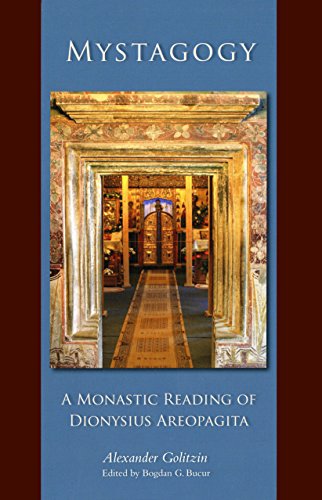

Most ebook files are in PDF format, so you can easily read them using various software such as Foxit Reader or directly on the Google Chrome browser.
Some ebook files are released by publishers in other formats such as .awz, .mobi, .epub, .fb2, etc. You may need to install specific software to read these formats on mobile/PC, such as Calibre.
Please read the tutorial at this link: https://ebookbell.com/faq
We offer FREE conversion to the popular formats you request; however, this may take some time. Therefore, right after payment, please email us, and we will try to provide the service as quickly as possible.
For some exceptional file formats or broken links (if any), please refrain from opening any disputes. Instead, email us first, and we will try to assist within a maximum of 6 hours.
EbookBell Team

5.0
88 reviewsMystagogy: A Monastic Reading of Dionysius Areopagita proposes an interpretation of the Pseudo-Dionysian corpus in light of the liturgical and ascetic tradition that defined the author and his audience. Characterized by both striking originality and remarkable fidelity to the patristic and late neoplatonic traditions, the Dionysian corpus is a coherent and unified structure, whose core and pivot is the treatise known as the Ecclesiastical Hierarchy. Given Pseudo-Dionysius' fundamental continuity with earlier Christian theology and spirituality, it is not surprising that the church, and in particular the ascetic community, recognized that this theological synthesis articulated its own fundamental experience and aspirations.
Alexander Golitzin is professor emeritus of patristics at Marquette University and a bishop in the Orthodox Church. He specializes in the origins of Eastern Christian ascetical and mystical tradition. He is the author of `Et introibo ad altare Dei': The Mystagogy of Dionysius Areopagita (Patriarchal Institute); St. Symeon the New Theologian on the Mystical Life: The Ethical Discourses, 3 vols. (St Vladimir's Seminary Press); and New Light from the Holy Mountain (St. Tikhon's Seminary Press), as well as several studies collected in The Theophaneia School: Jewish Roots of Christian Mysticism, ed. AndreiOrlov and Basil Lurie (Gorgias).